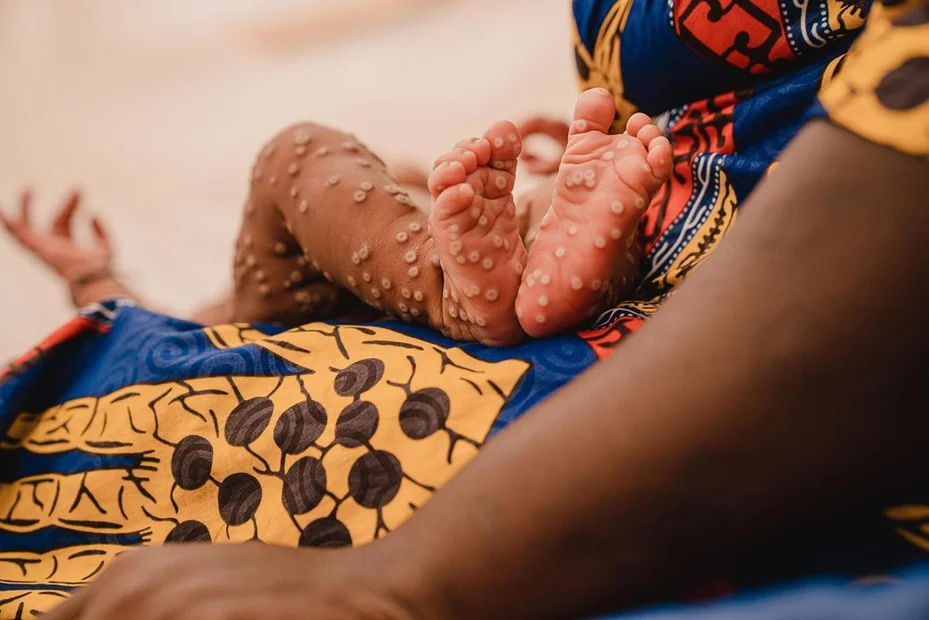Thousands of children in the Democratic Republic of the Congo (DRC) and neighbouring countries are at significant risk of contracting the mpox virus as cases of a new, more deadly, variant continue to surge, UNICEF warned today.
Since the start of the year, an estimated 8,772 children have contracted the disease in the DRC – more than half of the country’s 15,664 total reported cases – according to the latest available data. A total of 548 people have died, an estimated 463 of those were children.
“This new mpox variant outbreak is one more worrying threat for children and families, with many already living through ongoing conflict and displacement, cholera and polio outbreaks, and malnutrition,” said UNICEF Regional Director for West and Central Africa, Gilles Fagninou. “The evidence indicates that children, especially those malnourished or affected by other illnesses, are the most vulnerable to catching and dying from this strain of mpox. Protecting them must be the top priority.”
On 13 August, the Africa Centres for Disease Control and Prevention (Africa CDC) declared the surge of mpox in the DRC and other African countries as a Public Health Emergency of Continental Security.
That was followed by the World Health Organisation (WHO), which has now declared the surge of cases a Public Health Emergency of International Concern (PHEIC), with children under 5 years of age facing the highest risk of death, and pregnant woman especially vulnerable.
UNICEF is working with the Africa CDC and WHO, as well as other partners such as USAID and FCDO, to support national governments. In the DRC, UNICEF is working with the government on an mpox preparedness and response plan, with a focus on saving lives and protecting the most vulnerable children in the provinces of South Kivu, South Ubangi and Sankuru through:
- Risk communication and community engagement: Establishing ways for communities to share information on infections, training community leaders and workers, and better sharing information on protection measures and safety.
- Infection prevention and control: Enhancing the capacities of hygienists, supporting household decontamination, and providing hygiene supplies to healthcare facilities.
- Medical and nutritional care: Distributing emergency health kits in facilities handling mpox patients, installing tents to create additional treatment space, food support to patients’ families.
- Psychosocial support: Including addressing stigma and discrimination.
- Integrated outbreak analysis: Improving data quality and availability, identifying innovative approaches, and strengthening health systems in collaboration with various international partners.
- Coordination: Supporting information sharing with partners and evidence-based strategic plans.
UNICEF DRC is appealing for $4,581,000 to scale up interventions in a country that is already suffering funding shortfalls for emergencies linked to other disease outbreaks and ongoing conflict. An additional $1 million is required in West and Central Africa for regional preparedness, coordination and response efforts.
“The mpox outbreak is overwhelming a healthcare system already weakened by previous epidemics. Without immediate action and additional funding, the consequences for children will be severe,” added Fagninou.
***
When virus outbreaks like this occur, we need to act quickly. By donating to the UNICEF Switzerland and Liechtenstein Emergency Relief Fund, you are helping to ensure that we are always ready for action. Thank you very much for your support.






